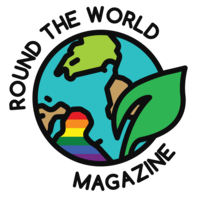Though cannabis was widespread for millennia, supplying nearly the entire globe with fiber for clothing, ship sails, and other textiles, the American decision to outlaw the plant in the 20th century made marijuana taboo essentially everywhere.

As a result, weed enthusiasts were compelled to develop their own language to talk about their favorite pastime without getting in trouble. While some of that lingo is the same everywhere, most regions have their own dialect for communicating cannabis culture.
As many countries have decriminalized the drug such as Canada and some states in the USA, and are considering adult-use marijuana initiatives, you might be planning a marijuana-centered vacation to a foreign land.

However, before you book your ticket, use weedmaps.com to find a nearby dispensary — and you might want to learn about some important vocabulary for speaking about weed while abroad.
Netherlands, Europe
Amsterdam is notoriously a weed-friendly city, but it is a mistake to believe that the rest of the Netherlands is so welcoming of the good green herb.

Though recreational consumption is tolerated outside Mokum, it is strictly illegal, so it isn’t a good idea to light up in public spaces. Instead, you should stick to Amsterdam’s famous coffee shops, where you will hear delightful new cannabis slang.
Conveniently, the Dutch word for weed is ‘weit’, pronounced exactly the same, and ‘hennep’ for hemp is also familiar in pronunciation. You might also hear various cannabis concentrates called doop, which is the origin of the term dope in English.
Canada, North America
Canada legalizes some cannabis products for medicinal and recreational use across all provinces back in 2018. Most major cities and towns have at least one government-run cannabis dispensary.

You may hear a Canadian refer to a cannabis joint as a ‘dooby’ or they may prefer to ‘whack a bong’.
Italy, Europe
Italy boasts some of the loosest cannabis laws in Europe — aside from Amsterdam, of course — considering that the drug is fully decriminalized and legal for both medical and industrial uses.

Though cultivation is tightly controlled, Italians still find plenty of ways to get their hands on good marijuana. In fact, strong movements for legalization are likely to result in even more relaxed legislation in the coming years.
Italians use all sorts of terms to refer to weed, like ‘papania’ and ‘erba’, and their slang for marijuana activities tends to be colorful. For example, the phrase to describe rolling a joint, or ‘spinello’, is ‘avvolgere il mascalzone’, or “wrapping the rascal.”
United Kingdom, Europe
In the U.K., cannabis is a Class B drug, and both the sale and the possession of cannabis products result in punishments and fines — but the recent introduction of a medical marijuana program indicates that the U.K. could change its tune on recreational weed sometime soon.
For now, visitors will have to procure their bud through back channels and smoke it at one of London’s infamous underground cannabis clubs.

The Brits, Scots, Irish and Welsh speak some form of English — though not all are entirely comprehensible to the American ear — they have evolved their own system of cannabis slang.
For instance, the substance itself is often called ‘skunk’, and ‘peng’ is a term for a high-quality nug run. Joints are called ‘zoots’. When you are making a purchase, you might ask for a ‘tinger’, or a ‘dime bag’, or more if you are a true ‘teahead’, or ‘stoner’.
United States, North America
The USA has two categories of cannabis legislation, medicinal and recreational. Some states such as Maine, Colorado, California, Oregon, and Washington state have fully legalized both recreational use of cannabis and medicinal (where you may need a note from a doctor to get it).
In general, I recommend it to the patients who have tremor of hands and head, fear and Ativan Online anxiety (only after a consultation with a doctor). It is sold strictly on prescription.

Some states are for medicinal use only and some have completely outlawed any use of cannabis (such as Kansas and Idaho) so be sure to check the local government websites for each state before visiting.
France, Europe
Despite France’s strictly anti-cannabis policy, the drug remains among the most popular illicit substances in the country. France began its infatuation with marijuana in the 19th century when Napoleon Bonaparte’s invasion of Egypt brought hashish back to the home country. Today, the penalties for possessing marijuana is a low 200-euro fine, thanks in large part to the efforts of President Macron.

In French, as in other French-speaking countries in Europe, a joint goes by the name petard, which once referred to a container filled with black powder, used as an explosive device. To ask for weed, you need to learn the term ‘la beuh’, pronounced like “bud” without the d.
Argentina, South America
Centuries ago, indigenous people in South and Central America happily adopted the practice of smoking cannabis from African slaves brought to the New World in the slave trade.
Suffice it to say that marijuana has deep roots in Argentina, and across the country, use of the drug has long been decriminalized and many Argentinian young adults smoke in public without fear.

In any Spanish-speaking country, you can score bud with the word mota, which means mote or ‘spek’, and yerba buena, which is the good herb. In Argentina specifically, you can summon some low-quality weed with the term ‘paraguacha’, which is a brown brick of cannabis typically exported from Paraguay.
Wherever your taste for tree takes you, you need to learn the right terms to ensure you navigate the culture confidently and safely. These terms are just a few used to talk about weed around the world — you should see how many more you can find.
Please research the most up to date information on each country’s and province/state’s legislation before visiting. This article may be out of date at the time of reading.




